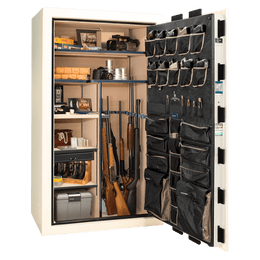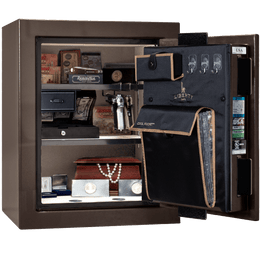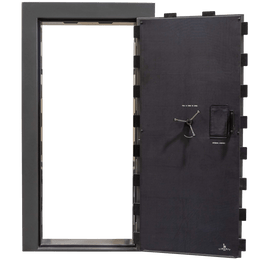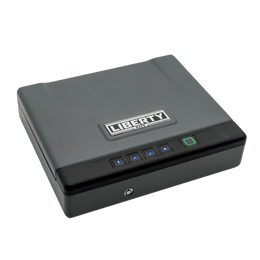What You Need to Know About Safety Deposit Boxes
We’ve seen it a million times on film and TV: if someone wants to protect their valuables, they stick them in a safe deposit box. What could be safer? Well, as it turns out, just about anything.
Safe deposit boxes have been around a long time. But they’re less popular now than they’ve ever been. An estimated 50% of safe deposit boxes in the U.S. are empty. Many banks are slowly phasing them out. Some no longer rent boxes to new customers. And big names like Wells Fargo aren’t even building them into their vaults anymore.
But the slow death of safe deposit boxes isn’t the only reason to avoid using them. Here are four things to consider:
- Banks (and their property) frequently change hands.
- Banks make mistakes.
- Banks have protections in place to help them avoid liability.
- There are virtually no protections in place for the people who rent out the box.
Most of the following information comes from this New York Times article. Now, let’s take an in-depth look at these 4 reasons.
Reason #1: Bank Properties Frequently Change Hands
Bank locations can change hands numerous times over the course of a few decades. Local banks sometimes go under, sell out, or consolidate branches. And even large national chains can do the same. When this happens, the physical space changes hands. This includes the vault and the safe deposit boxes inside it.
If a new bank buys the old one, the contents of safe deposit boxes are included in that exchange. This can sometimes lead to people being locked out of their own safe deposit box. Or worse, the contents of their box is removed without their permission.
Reason #2: Banks Make Mistakes
In the New York Times story, a Polish man who collected rare and exotic timepieces used a safe deposit box to keep his watches safe. The bank he used had to evict a different safe deposit box occupant. Unfortunately, they mixed up the two boxes. The bank ended up emptying this man’s watch collection, instead. HUGE mistake.
But that wasn’t the only oops. Bank employees took an inventory of the box contents before emptying it. They did this without having a notary present. That’s not just a mistake — it’s illegal.
Then the bank employees took the valuables to a storage unit. When the watch collector was finally able to piece together what happened, some of the most valuable pieces from his collection were missing.
Clearly, banks aren’t always careful when dealing with safe deposit boxes. When one is opened forcibly and the contents removed, some of the items may go missing. And depending on what you put in there, that could cost you anywhere from a few hundred to millions of dollars.
Reason #3: Banks Have Protections in Place to Help Them Avoid Liability
Most banks require you to sign their terms and conditions in order to do business with them. Those terms require arbitration and limit the amount banks can be held liable for.
Another big problem? The banks often employ the arbitrators you’re required to use. Clearly, they’re not unbiased, and they’re not going to be working in your favor.
Reason #4: There Are Few Legal Protections for Safe Deposit Box Renters
There are almost no protections in place if your valuables get lost. Those pesky terms and conditions you’re forced to sign really limit your options if something happens to your valuables. And you give up your ability to sue the bank when you agree to arbitration. Not to mention the fact that banks have more resources to throw at any arbitration proceedings.
The Benefits of a gun Safe You Can Keep at Home
You can see why many people decide they’d rather take matters into their own hands and purchase a gun safe or home safe. With the right one, you’ll get a really secure, fire protected safe. It will be within your control. And you’ll have access 24/7 from the comfort of your own home. Imagine never having to rely on banking hours to access your valuables.
So, should you get a safety deposit box or a safe for your home? It’s up to you. But it’s clear why many people decide it’s best not to trust the security of their valuables to people who clearly don’t value them.







